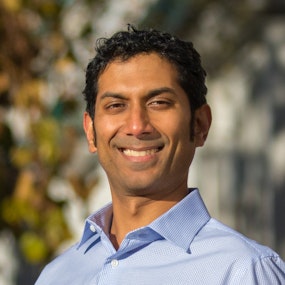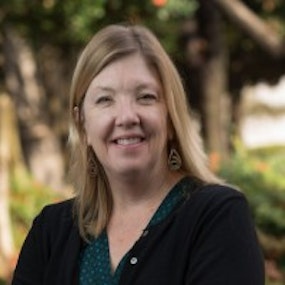ROBERT JOHNSON:
This is the award-winning Public Health Review Morning Edition for Wednesday, December 20, 2023. I'm Robert Johnson. Now, today's news from the Association of State and Territorial Health Officials.
NILESH KALYANARAMAN:
You know, I give credit to our elected officials and our legislators for really being interested in these issues and wanting to understand, you know, what the issues are and what the tradeoffs are. Right? There are tradeoffs with all of these.
JOHNSON:
Maryland Deputy Secretary of Public Health Dr. Nilesh Kalyanaraman says his state has been able to engage bold policies to help people and address health inequities.
KALYANARAMAN:
So, they passed the Healthy Babies Equity Act that went into effect this year, that allows any woman regardless of immigration status, as long as they would otherwise qualify for Medicaid to be covered while they're pregnant, and during the postpartum period.
JOHNSON:
Another example is Maryland's new law to tighten requirements for the way guns need to be stored in the home.
KALYANARAMAN:
This is a way to really put public health at the center of this response and say what are the avenues we can look at to increase awareness and utilization of safe firearm storage techniques.
JOHNSON:
Communities of color are known to suffer more from the impacts of climate change. Kalyanaraman says Maryland is among those states taking on PFAS chemicals.
KALYANARAMAN:
We're doing a lot of work leading the nation actually in detecting PFAS, detecting PFAS in water, and other types of samples like fish, and soil samples and then, using that to drive either finding alternative water sources or driving mitigation as is necessary.
JOHNSON:
Optimal health approaches to incorporate health equity are examined as part of ASTHO's 2024 Legislative Prospectus series. Our coverage of the series began last week. It continues through the end of this week. You can read more using the links in the show notes.
Colorado is raising up a new generation of public health leaders through an apprenticeship program offered in partnership with AmeriCorps and the Trailhead Institute for Public Health Innovation. Dr. Mondi Mason is with the Denver Department of Public Health and Environment.
MONDI MASON:
The whole intent of these AmeriCorps apprenticeship programs is to build the workforce and to really start thinking strategically early on, even prior to onboarding these miracle apprentices thinking about the career pathway, and how you're going to retain these folks.
JOHNSON:
During the apprenticeship, some workers in Denver have been in the field talking to people living in encampments trying to improve their access to services.
MASON:
Others are facilitating a lot of different workgroups, community-based groups around climate action, or substance use prevention. For instance, one particular AmeriCorps apprentice is providing a lot of naloxone education to community members, people experiencing homelessness, and organizational partners who are working with people experiencing homelessness.
JOHNSON:
Learn more about the Colorado project and how organizers have braided grant funding to support program participants by clicking the link in the show notes.
Also, today, a new ASTHO blog article explains how agencies have used the Preventive Health and Health Services Block grant to support health equity. You can read it using the link in the show notes.
Finally, this morning, ASTHO produces several email newsletters to keep you plugged into the latest public health news and legislative action. Sign up for Public Health Weekly and Legislative Alert emails using the link in the show notes.
Before we go, we'd like to remind you to follow this newscast on your podcast player and ASTHO on social media. We're on LinkedIn, Twitter, and Facebook. That'll do it for today.
We're back tomorrow morning with more ASTHO news and information. I'm Robert Johnson. You're listening to the award-winning Public Health Review Morning Edition. Have a great day.






